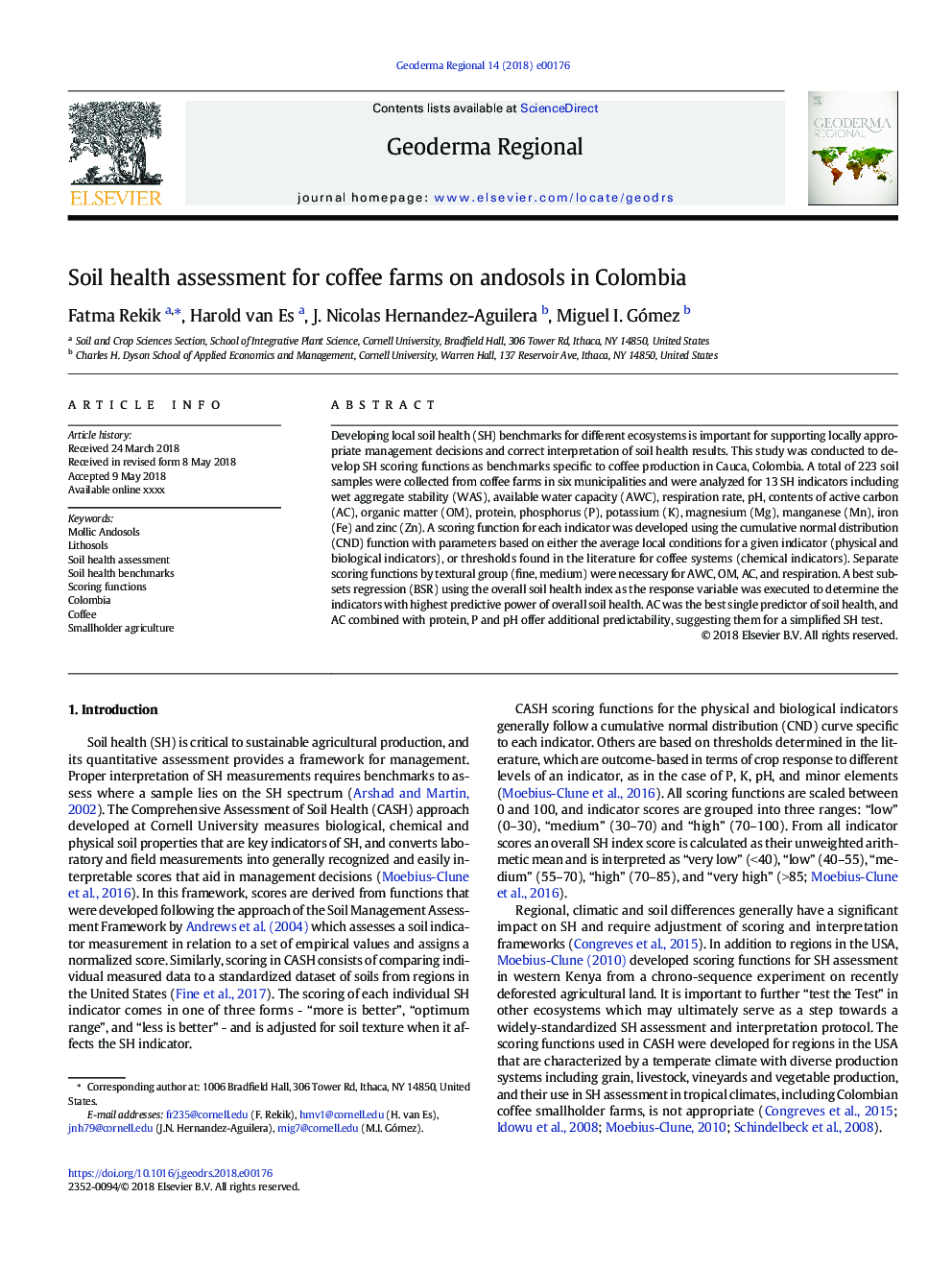| Article ID | Journal | Published Year | Pages | File Type |
|---|---|---|---|---|
| 8873233 | Geoderma Regional | 2018 | 7 Pages |
Abstract
Developing local soil health (SH) benchmarks for different ecosystems is important for supporting locally appropriate management decisions and correct interpretation of soil health results. This study was conducted to develop SH scoring functions as benchmarks specific to coffee production in Cauca, Colombia. A total of 223 soil samples were collected from coffee farms in six municipalities and were analyzed for 13 SH indicators including wet aggregate stability (WAS), available water capacity (AWC), respiration rate, pH, contents of active carbon (AC), organic matter (OM), protein, phosphorus (P), potassium (K), magnesium (Mg), manganese (Mn), iron (Fe) and zinc (Zn). A scoring function for each indicator was developed using the cumulative normal distribution (CND) function with parameters based on either the average local conditions for a given indicator (physical and biological indicators), or thresholds found in the literature for coffee systems (chemical indicators). Separate scoring functions by textural group (fine, medium) were necessary for AWC, OM, AC, and respiration. A best subsets regression (BSR) using the overall soil health index as the response variable was executed to determine the indicators with highest predictive power of overall soil health. AC was the best single predictor of soil health, and AC combined with protein, P and pH offer additional predictability, suggesting them for a simplified SH test.
Related Topics
Physical Sciences and Engineering
Earth and Planetary Sciences
Earth-Surface Processes
Authors
Fatma Rekik, Harold van Es, J. Nicolas Hernandez-Aguilera, Miguel I. Gómez,
